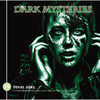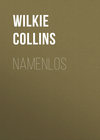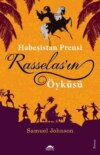Kitabı oku: «Johnson's Lives of the Poets. Volume 1», sayfa 10
Such were the life and death of Richard Savage, a man equally distinguished by his virtues and vices; and at once remarkable for his weaknesses and abilities. He was of a middle stature, of a thin habit of body, a long visage, coarse features, and melancholy aspect; of a grave and manly deportment, a solemn dignity of mien, but which, upon a nearer acquaintance, softened into an engaging easiness of manners. His walk was slow, and his voice tremulous and mournful. He was easily excited to smiles, but very seldom provoked to laughter. His mind was in an uncommon degree vigorous and active. His judgment was accurate, his apprehension quick, and his memory so tenacious, that he was frequently observed to know what he had learned from others, in a short time, better that those by whom he was informed; and could frequently recollect incidents with all their combination of circumstances, which few would have regarded at the present time, but which the quickness of his apprehension impressed upon him. He had the art of escaping from his own reflections, and accommodating himself to every new scene.
To this quality is to be imputed the extent of his knowledge, compared with the small time which he spent in visible endeavours to acquire it. He mingled in cursory conversation with the same steadiness of attention as others apply to a lecture; and amidst the appearance of thoughtless gaiety lost no new idea that was started, nor any hint that could be improved. He had therefore made in coffee-houses the same proficiency as others in their closets; and it is remarkable that the writings of a man of little education and little reading have an air of learning scarcely to be found in any other performances, but which perhaps as often obscures as embellishes them.
His judgment was eminently exact both with regard to writings and to men. The knowledge of life was indeed his chief attainment; and it is not without some satisfaction that I can produce the suffrage of Savage in favour of human nature, of which he never appeared to entertain such odious ideas as some who perhaps had neither his judgment nor experience, have published, either in ostentation of their sagacity, vindication of their crimes, or gratification of their malice.
His method of life particularly qualified him for conversation, of which he knew how to practise all the graces. He was never vehement or loud, but at once modest and easy, open and respectful; his language was vivacious or elegant, and equally happy upon grave and humorous subjects. He was generally censured for not knowing when to retire; but that was not the defect of his judgment, but of his fortune: when he left his company he used frequently to spend the remaining part of the night in the street, or at least was abandoned to gloomy reflections, which it is not strange that he delayed as long as he could; and sometimes forgot that he gave others pain to avoid it himself.
It cannot be said that he made use of his abilities for the direction of his own conduct; an irregular and dissipated manner of life had made him the slave of every passion that happened to be excited by the presence of its object, and that slavery to his passions reciprocally produced a life irregular and dissipated. He was not master of his own motions, nor could promise anything for the next day.
With regard to his economy, nothing can be added to the relation of his life. He appeared to think himself born to be supported by others, and dispensed from all necessity of providing for himself; he therefore never prosecuted any scheme of advantage, nor endeavoured even to secure the profits which his writings might have afforded him. His temper was, in consequence of the dominion of his passions, uncertain and capricious; he was easily engaged, and easily disgusted; but he is accused of retaining his hatred more tenaciously than his benevolence. He was compassionate both by nature and principle, and always ready to perform offices of humanity; but when he was provoked (and very small offences were sufficient to provoke him), he would prosecute his revenge with the utmost acrimony till his passion had subsided.
His friendship was therefore of little value; for though he was zealous in the support or vindication of those whom he loved, yet it was always dangerous to trust him, because he considered himself as discharged by the first quarrel from all ties of honour and gratitude; and would betray those secrets which in the warmth of confidence had been imparted to him. This practice drew upon him an universal accusation of ingratitude; nor can it be denied that he was very ready to set himself free from the load of an obligation; for he could not bear to conceive himself in a state of dependence, his pride being equally powerful with his other passions, and appearing in the form of insolence at one time, and of vanity at another. Vanity, the most innocent species of pride, was most frequently predominant: he could not easily leave off, when he had once begun to mention himself or his works; nor ever read his verses without stealing his eyes from the page, to discover in the faces of his audience how they were affected with any favourite passage.
A kinder name than that of vanity ought to be given to the delicacy with which he was always careful to separate his own merit from every other man's, and to reject that praise to which he had no claim. He did not forget, in mentioning his performances, to mark every line that had been suggested or amended; and was so accurate as to relate that he owed three words in "The Wanderer" to the advice of his friends. His veracity was questioned, but with little reason; his accounts, though not indeed always the same, were generally consistent. When he loved any man, he suppressed all his faults; and when he had been offended by him, concealed all his virtues; but his characters were generally true, so far as he proceeded; though it cannot be denied that his partiality might have sometimes the effect of falsehood.
In cases indifferent he was zealous for virtue, truth, and justice: he knew very well the necessity of goodness to the present and future happiness of mankind; nor is there perhaps any writer who has less endeavoured to please by flattering the appetites, or perverting the judgment.
As an author, therefore, and he now ceases to influence mankind in any other character, if one piece which he had resolved to suppress be excepted, he has very little to fear from the strictest moral or religious censure. And though he may not be altogether secure against the objections of the critic, it must however be acknowledged that his works are the productions of a genius truly poetical; and, what many writers who have been more lavishly applauded cannot boast, that they have an original air, which has no resemblance of any foregoing writer, that the versification and sentiments have a cast peculiar to themselves, which no man can imitate with success, because what was nature in Savage would in another be affectation. It must be confessed that his descriptions are striking, his images animated, his fictions justly imagined, and his allegories artfully pursued; that his diction is elevated, though sometimes forced, and his numbers sonorous and majestic, though frequently sluggish and encumbered. Of his style the general fault is harshness, and its general excellence is dignity; of his sentiments, the prevailing beauty is simplicity, and uniformity the prevailing defect.
For his life, or for his writings, none who candidly consider his fortune will think an apology either necessary or difficult. If he was not always sufficiently instructed in his subject, his knowledge was at least greater than could have been attained by others in the same state. If his works were sometimes unfinished, accuracy cannot reasonably be expected from a man oppressed with want, which he has no hope of relieving but by a speedy publication. The insolence and resentment of which he is accused were not easily to be avoided by a great mind irritated by perpetual hardships and constrained hourly to return the spurns of contempt, and repress the insolence of prosperity; and vanity surely may be readily pardoned in him, to whom life afforded no other comforts than barren praises, and the consciousness of deserving them.
Those are no proper judges of his conduct who have slumbered away their time on the down of plenty; nor will any wise man easily presume to say, "Had I been in Savage's condition, I should have lived or written better than Savage."
This relation will not be wholly without its use, if those who languish under any part of his sufferings shall be enabled to fortify their patience by reflecting that they feel only these afflictions from which the abilities of Savage did not exempt him; or those who, in confidence of superior capacities or attainments, disregard the common maxims of life, shall be reminded that nothing will supply the want of prudence; and that negligence and irregularity, long continued, will make knowledge useless, wit ridiculous, and genius contemptible.
SWIFT
An account of Dr. Swift has been already collected, with great diligence and acuteness, by Dr. Hawkesworth, according to a scheme which I laid before him in the intimacy of our friendship. I cannot therefore be expected to say much of a life, concerning which I had long since communicated my thoughts to a man capable of dignifying his narrations with so much elegance of language and force of sentiment.
Jonathan Swift was, according to an account said to be written by himself, the son of Jonathan Swift, an attorney, and was born at Dublin on St. Andrew's day, 1667: according to his own report, as delivered by Pope to Spence, he was born at Leicester, the son of a clergyman who was minister of a parish in Herefordshire. During his life the place of his birth was undetermined. He was contented to be called an Irishman by the Irish; but would occasionally call himself an Englishman. The question may, without much regret, be left in the obscurity in which he delighted to involve it.
Whatever was his birth, his education was Irish. He was sent at the age of six to the school at Kilkenny, and in his fifteenth year (1682) was admitted into the University of Dublin. In his academical studies he was either not diligent or not happy. It must disappoint every reader's expectation, that, when at the usual time he claimed the Bachelorship of Arts, he was found by the examiners too conspicuously deficient for regular admission, and obtained his degree at last by SPECIAL FAVOUR; a term used in that university to denote want of merit.
Of this disgrace it may be easily supposed that he was much ashamed, and shame had its proper effect in producing reformation. He resolved from that time to study eight hours a day, and continued his industry for seven years, with what improvement is sufficiently known. This part of his story well deserves to be remembered; it may afford useful admonition and powerful encouragement to men whose abilities have been made for a time useless by their passions or pleasures, and who having lost one part of life in idleness, are tempted to throw away the remainder in despair. In this course of daily application he continued three years longer at Dublin; and in this time, if the observation and memory of an old companion may be trusted, he drew the first sketch of his "Tale of a Tub."
When he was about one-and-twenty (1688), being by the death of Godwin Swift, his uncle, who had supported him, left without subsistence, he went to consult his mother, who then lived at Leicester, about the future course of his life; and by her direction solicited the advice and patronage of Sir William Temple, who had married one of Mrs. Swift's relations, and whose father Sir John Temple, Master of the Rolls in Ireland, had lived in great familiarity of friendship with Godwin Swift, by whom Jonathan had been to that time maintained.
Temple received with sufficient kindness the nephew of his father's friend, with whom he was, when they conversed together, so much pleased, that he detained him two years in his house. Here he became known to King William, who sometimes visited Temple, when he was disabled by the gout, and, being attended by Swift in the garden, showed him how to cut asparagus in the Dutch way. King William's notions were all military; and he expressed his kindness to Swift by offering to make him a captain of horse.
When Temple removed to Moor Park, he took Swift with him; and when he was consulted by the Earl of Portland about the expedience of complying with a bill then depending for making parliaments triennial, against which King William was strongly prejudiced, after having in vain tried to show the earl that the proposal involved nothing dangerous to royal power, he sent Swift for the same purpose to the king. Swift, who probably was proud of his employment, and went with all the confidence of a young man, found his arguments, and his art of displaying them, made totally ineffectual by the predetermination of the king; and used to mention this disappointment as his first antidote against vanity. Before he left Ireland he contracted a disorder, as he thought, by eating too much fruit. The original of diseases is commonly obscure. Almost everybody eats as much fruit as he can get, without any great inconvenience. The disease of Swift was giddiness with deafness, which attacked him from time to time, began very early, pursued him through life, and at last sent him to the grave, deprived of reason. Being much oppressed at Moor Park by this grievous malady, he was advised to try his native air, and went to Ireland; but finding no benefit, returned to Sir William, at whose house he continued his studies, and is known to have read, among other books, Cyprian and Irenaeus. He thought exercise of great necessity, and used to run half a mile up and down a hill every two hours.
It is easy to imagine that the mode in which his first degree was conferred left him no great fondness for the University of Dublin, and therefore he resolved to become a Master of Arts at Oxford. In the testimonial which he produced the words of disgrace were omitted; and he took his Master's degree (July 5, 1692) with such reception and regard as fully contented him.
While he lived with Temple, he used to pay his mother at Leicester a yearly visit. He travelled on foot, unless some violence of weather drove him into a waggon; and at night he would go to a penny lodging, where he purchased clean sheets for sixpence. This practice Lord Orrery imputes to his innate love of grossness and vulgarity: some may ascribe it to his desire of surveying human life through all its varieties: and others, perhaps with equal probability, to a passion which seems to have been deeply fixed in his heart, the love of a shilling. In time he began to think that his attendance at Moor Park deserved some other recompense than the pleasure, however mingled with improvement, of Temple's conversation; and grew so impatient, that (1694) he went away in discontent. Temple, conscious of having given reason for complaint, is said to have made him deputy Master of the Rolls in Ireland; which, according to his kinsman's account, was an office which he knew him not able to discharge. Swift therefore resolved to enter into the Church, in which he had at first no higher hopes than of the chaplainship to the Factory at Lisbon; but being recommended to Lord Capel, he obtained the prebend of Kilroot in Connor, of about a hundred pounds a year. But the infirmities of Temple made a companion like Swift so necessary, that he invited him back, with a promise to procure him English preferment in exchange for the prebend, which he desired him to resign. With this request Swift complied, having perhaps equally repented their separation, and they lived on together with mutual satisfaction; and, in the four years that passed between his return and Temple's death, it is probable that he wrote the "Tale of a Tub," and the "Battle of the Books."
Swift began early to think, or to hope, that he was a poet, and wrote Pindaric Odes to Temple, to the king, and to the Athenian Society, a knot of obscure men, who published a periodical pamphlet of answers to questions, sent, or supposed to be sent, by letters. I have been told that Dryden, having perused these verses, said, "Cousin Swift, you will never be a poet;" and that this denunciation was the motive of Swift's perpetual malevolence to Dryden. In 1699 Temple died, and left a legacy with his manuscripts to Swift, for whom he had obtained, from King William, a promise of the first prebend that should be vacant at Westminster or Canterbury. That this promise might not be forgotten, Swift dedicated to the king the posthumous works with which he was intrusted; but neither the dedication, nor tenderness for the man whom he once had treated with confidence and fondness, revived in King William the remembrance of his promise. Swift awhile attended the Court; but soon found his solicitations hopeless. He was then invited by the Earl of Berkeley to accompany him into Ireland, as his private secretary; but, after having done the business till their arrival at Dublin, he then found that one Bush had persuaded the earl that a clergyman was not a proper secretary, and had obtained the office for himself. In a man like Swift, such circumvention and inconstancy must have excited violent indignation. But he had yet more to suffer. Lord Berkeley had the disposal of the deanery of Derry, and Swift expected to obtain it; but by the secretary's influence, supposed to have been secured by a bribe, it was bestowed on somebody else; and Swift was dismissed with the livings of Laracor and Rathbeggin in the diocese of Meath, which together did not equal half the value of the deanery. At Laracor he increased the parochial duty by reading prayers on Wednesdays and Fridays, and performed all the offices of his profession with great decency and exactness.
Soon after his settlement at Laracor, he invited to Ireland the unfortunate Stella, a young woman whose name was Johnson, the daughter of the steward of Sir William Temple, who, in consideration of her father's virtues, left her a thousand pounds. With her came Mrs. Dingley, whose whole fortune was twenty-seven pounds a year for her life. With these ladies he passed his hours of relaxation, and to them he opened his bosom; but they never resided in the same house, nor did he see either without a witness. They lived at the Parsonage when Swift was away, and, when he returned, removed to a lodging, or to the house of a neighbouring clergyman.
Swift was not one of those minds which amaze the world with early pregnancy: his first work, except his few poetical Essays, was the "Dissensions in Athens and Rome," published (1701) in his thirty-fourth year. After its appearance, paying a visit to some bishop, he heard mention made of the new pamphlet that Burnet had written, replete with political knowledge. When he seemed to doubt Burnet's right to the work, he was told by the bishop that he was "a young man," and still persisting to doubt, that he was "a very positive young man."
Three years afterwards (1704) was published "The Tale of a Tub;" of this book charity may be persuaded to think that it might be written by a man of a peculiar character without ill intention; but it is certainly of dangerous example. That Swift was its author, though it be universally believed, was never owned by himself, nor very well proved by any evidence; but no other claimant can be produced, and he did not deny it when Archbishop Sharp and the Duchess of Somerset, by showing it to the queen, debarred him from a bishopric. When this wild work first raised the attention of the public, Sacheverell, meeting Smalridge, tried to flatter him by seeming to think him the author, but Smalridge answered with indignation, "Not all that you and I have in the world, nor all that ever we shall have, should hire me to write the 'Tale of a Tub.'"
The digression relating to Wotton and Bentley must be confessed to discover want of knowledge or want of integrity; he did not understand the two controversies, or he willingly misrepresented them. But Wit can stand its ground against Truth only a little while. The honours due to Learning have been justly distributed by the decision of posterity.
"The Battle of the Books" is so like the "Combat des Livres," which the same question concerning the Ancients and Moderns had produced in France, that the improbability of such a coincidence of thoughts without communication, is not, in my opinion, balanced by the anonymous protestation prefixed, in which all knowledge of the French book is peremptorily disowned.
For some time after, Swift was probably employed in solitary study, gaining the qualifications requisite for future eminence. How often he visited England, and with what diligence he attended his parishes, I know not. It was not till about four years afterwards that he became a professed author; and then one year (1708) produced "The Sentiments of a Church of England Man;" the ridicule of Astrology under the name of "Bickerstaff;" the "Argument against abolishing Christianity;" and the defence of the "Sacramental Test."
"The Sentiments of a Church of England Man" is written with great coolness, moderation, ease, and perspicuity. The "Argument against abolishing Christianity" is a very happy and judicious irony. One passage in it deserves to be selected:—
"If Christianity were once abolished, how could the free-thinkers, the strong reasoners, and the men of profound learning, be able to find another subject so calculated, in all points, whereon to display their abilities? What wonderful productions of wit should we be deprived of from those whose genius, by continual practice, hath been wholly turned upon raillery and invectives against religion, and would therefore never be able to shine or distinguish themselves upon any other subject! We are daily complaining of the great decline of wit among us, and would take away the greatest, perhaps the only topic we have left. Who would ever have suspected Asgill for a wit, or Toland for a philosopher, if the inexhaustible stock of Christianity had not been at hand to provide them with materials? What other subject, through all art or nature, could have produced Tindal for a profound author, or furnished him with readers? It is the wise choice of the subject that alone adorns and distinguishes the writer. For had a hundred such pens as these been employed on the side of religion, they would have immediately sunk into silence and oblivion."
The reasonableness of a "Test" is not hard to be proved; but perhaps it must be allowed that the proper test has not been chosen. The attention paid to the papers published under the name of "Bickerstaff," induced Steele, when he projected the Tatler, to assume an appellation which had already gained possession of the reader's notice.
In the year following he wrote a "Project for the Advancement of Religion," addressed to Lady Berkeley, by whose kindness it is not unlikely that he was advanced to his benefices. To this project, which is formed with great purity of intention, and displayed with sprightliness and elegance, it can only be objected, that, like many projects, it is, if not generally impracticable, yet evidently hopeless, as it supposes more zeal, concord, and perseverance than a view of mankind gives reason for expecting. He wrote likewise this year a "Vindication of Bickerstaff," and an explanation of an "Ancient Prophecy," part written after the facts, and the rest never completed, but well planned to excite amazement.
Soon after began the busy and important part of Swift's life. He was employed (1710) by the Primate of Ireland to solicit the queen for a remission of the First Fruits and Twentieth Parts to the Irish Clergy. With this purpose he had recourse to Mr. Harley, to whom he was mentioned as a man neglected and oppressed by the last Ministry, because he had refused to co-operate with some of their schemes. What he had refused has never been told; what he had suffered was, I suppose, the exclusion from a bishopric by the remonstrances of Sharp, whom he describes as "the harmless tool of others' hate," and whom he represents as afterwards "suing for pardon."
Harley's designs and situation were such as made him glad of an auxiliary so well qualified for his service: he therefore soon admitted him to familiarity, whether ever to confidence some have made a doubt; but it would have been difficult to excite his zeal without persuading him that he was trusted, and not very easy to delude him by false persuasions. He was certainly admitted to those meetings in which the first hints and original plan of action are supposed to have been formed; and was one of the sixteen ministers, or agents of the Ministry, who met weekly at each other's houses, and were united by the name of "Brother." Being not immediately considered as an obdurate Tory, he conversed indiscriminately with all the wits, and was yet the friend of Steele; who, in the Tatler, which began in April, 1709, confesses the advantage of his conversation, and mentions something contributed by him to his paper. But he was now emerging into political controversy; for the year 1710 produced the Examiner, of which Swift wrote thirty-three papers. In argument he may be allowed to have the advantage: for where a wide system of conduct, and the whole of a public character, is laid open to inquiry, the accuser, having the choice of facts, must be very unskilful if he does not prevail: but with regard to wit, I am afraid none of Swift's papers will be found equal to those by which Addison opposed him.
He wrote in the year 1711 a "Letter to the October Club," a number of Tory gentlemen sent from the country to Parliament, who formed themselves into a club, to the number of about a hundred, and met to animate the zeal and raise the expectations of each other. They thought, with great reason, that the Ministers were losing opportunities; that sufficient use was not made of the ardour of the nation; they called loudly for more changes, and stronger efforts; and demanded the punishment of part and the dismission of the rest, of those whom they considered as public robbers. Their eagerness was not gratified by the queen, or by Harley. The queen was probably slow because she was afraid; and Harley was slow because he was doubtful; he was a Tory only by necessity, or for convenience; and, when he had power in his hands, had no settled purpose for which he should employ it; forced to gratify to a certain degree the Tories who supported him, but unwilling to make his reconcilement to the Whigs utterly desperate, he corresponded at once with the two expectants of the Crown, and kept, as has been observed, the succession undetermined. Not knowing what to do, he did nothing; and, with the fate of a double dealer, at last he lost his power, but kept his enemies.
Swift seems to have concurred in opinion with the "October Club;" but it was not in his power to quicken the tardiness of Harley, whom he stimulated as much as he could, but with little effect. He that knows not whither to go, is in no haste to move. Harley, who was perhaps not quick by nature, became yet more slow by irresolution; and was content to hear that dilatoriness lamented as natural, which he applauded in himself as politic. Without the Tories, however, nothing could be done; and, as they were not to be gratified, they must be appeased; and the conduct of the Minister, if it could not be vindicated, was to be plausibly excused.
Early in the next year he published a "Proposal for Correcting, Improving, and Ascertaining the English Tongue," in a Letter to the Earl of Oxford; written without much knowledge of the general nature of language, and without any accurate inquiry into the history of other tongues. The certainty and stability which, contrary to all experience, he thinks attainable, he proposes to secure by instituting an academy; the decrees of which every man would have been willing, and many would have been proud, to disobey, and which, being renewed by successive elections, would in a short time have differed from itself.
Swift now attained the zenith of his political importance: he published (1712) the "Conduct of the Allies," ten days before the Parliament assembled. The purpose was to persuade the nation to a peace; and never had any writer more success. The people, who had been amused with bonfires and triumphal processions, and looked with idolatry on the General and his friends, who, as they thought, had made England the arbitress of nations, were confounded between shame and rage, when they found that "mines had been exhausted, and millions destroyed," to secure the Dutch or aggrandise the Emperor, without any advantage to ourselves; that we had been bribing our neighbours to fight their own quarrel; and that amongst our enemies we might number our allies. That is now no longer doubted, of which the nation was then first informed, that the war was unnecessarily protracted to fill the pockets of Marlborough; and that it would have been continued without end, if he could have continued his annual plunder. But Swift, I suppose, did not yet know what he has since written, that a commission was drawn which would have appointed him General for life, had it not become ineffectual by the resolution of Lord Cowper, who refused the seal.
"Whatever is received," say the schools, "is received in proportion to the recipient." The power of a political treatise depends much upon the disposition of the people; the nation was then combustible, and a spark set it on fire. It is boasted, that between November and January eleven thousand were sold: a great number at that time, when we were not yet a nation of readers. To its propagation certainly no agency of power or influence was wanting. It furnished arguments for conversation, speeches for debate, and materials for parliamentary resolutions. Yet, surely, whoever surveys this wonder-working pamphlet with cool perusal, will confess that its efficacy was supplied by the passions of its readers; that it operates by the mere weight of facts, with very little assistance from the hand that produced them.




















